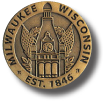Dear all - I am forwarding this opportunity on behalf of a colleague. All
questions can be directed to Dr. Zhao Ma, zhaoma@purdue.edu. :)_________________________________________________________
Purdue University Human Dimensions Lab is looking for a dynamic, motivated,
proactive, and responsible individual to join us as a Research Coordinator.
We expect this individual to bring excellent project coordination,
facilitation, communication, and leadership skills to several
multidisciplinary and interdisciplinary teams associated with the Human
Dimensions Lab. This position will be based on campus in West Lafayette,
Indiana. The Research Coordinator will report to Dr. Zhao Ma, the Director
of the Human Dimensions Lab, and will work closely with a team of graduate
students, faculty collaborators, and external partners to ensure successful
implementation of various research projects. This is a full-time, salaried
position with full benefits.
*Specific responsibilities include: *
- Plan and manage research projects, including organizing project
implementation and achieving milestones in a timely manner
- Participate in and lead data collection and analysis for a selected
number of research projects
- Lead reporting to sponsors
- Draft academic and non-academic products for a diverse audience
- Maintain a data management procedure
- Manage and coordinate undergraduate research assistants
- Manage daily operations and communication
*Qualifications: *
- Master’s degree from an environmental social science, natural
resource, conservation, or related field
- Experience conducting research and participating in interdisciplinary
academic research
- Excellent interpersonal skills, with the ability to collaborate
effectively with diverse partners
- Excellent written and verbal communication and facilitation skills
- Project management experience, including planning and execution of
research projects
- Excellent organizational and project management skills, with the
ability to prioritize tasks, meet deadlines, and manage tasks across
multiple concurrent projects
- Preferred knowledge and skills: experience with STATA or another
statistical software; experience with NVivo or another qualitative data
analysis software; experience with data management
*Terms and compensation:* This position is initially for two years, but
renewable given satisfactory progress and pending financial resources.
Annual salary ranges from $50,000-$52,000 (commensurate with experience),
plus benefits. The position will provide funds to cover relevant travel
expenses to research sites and other appropriate research events. The
selected individual will also have opportunities for professional
development on and off-campus. Preferred start date is* as soon as possible*
.
*Application procedure:* Please submit* a letter of interest, a detailed
resume or CV, and contact information for three references* via
https://careers.purdue.edu/job-invite/30888/. Review of applications began
on March 31, 2024 and will continue until the position is filled. For any
questions, please contact Dr. Zhao Ma (zhaoma@purdue.edu) directly.
This position is located in West Lafayette, Indiana, home to Purdue
University. There is a vibrant community of faculty, staff and students who
are dedicated to impactful research focusing on sustainability,
conservation and society, and international development. The Research
Coordinator will have many opportunities to engage with this community on
campus. More broadly, the West Lafayette-Lafayette area is situated between
Indianapolis and Chicago and is home to over 170,000 residents. We enjoy a
diverse community, high quality of life, good schools, safe neighborhoods,
and over 40 parks and various outdoor recreation opportunities.
*Purdue University is an affirmative action and equal opportunity employer
with a strong institutional commitment to diversity among its faculty,
staff, and students.*








